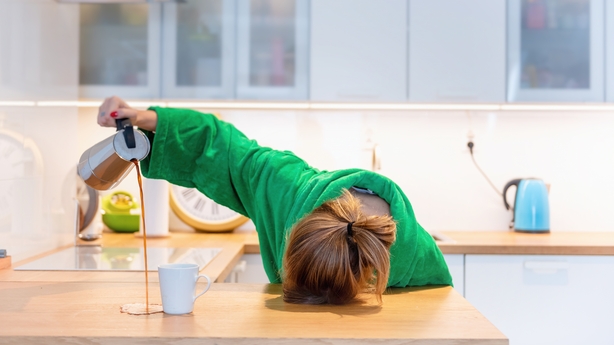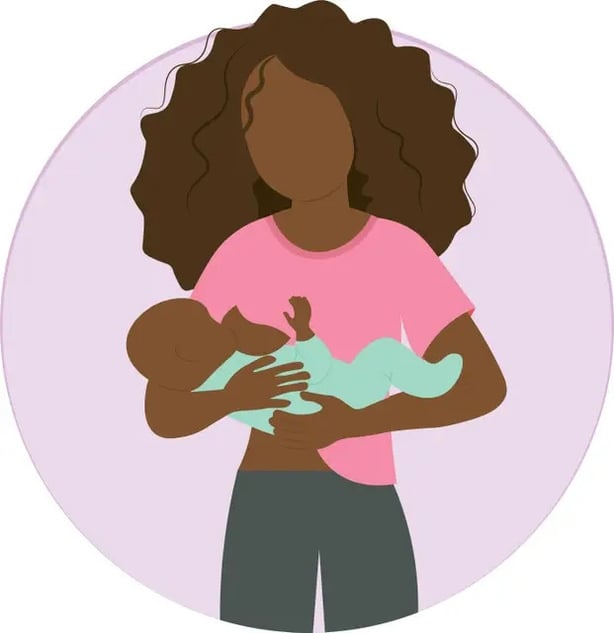Although there are a wide range of benefits of breastfeeding that are being highlighted during World Breastfeeding Week (August 1-7), including protecting the baby from infection and disease, and health benefits for the mother, a huge proportion of mothers give up within the first six weeks for a variety of reasons.
Figures from the last UK-wide Infant Feeding Survey (albeit from 2010) found that while more than three-quarters of women start breastfeeding when their baby’s born, this drops to 55% doing any breastfeeding at six weeks, while at six months, just 34% do any breastfeeding, and only 1% breastfeed exclusively.
In Ireland, according to WHO World Health Statistics in 2013, 15% of children are exclusively breastfed for the first six months compared with the global average of 38%.

There are many reasons for this (and, ultimately, a fed baby is a happy baby), but some research found that many news mothers were concerned they might need a special diet to breastfeed, and a similar proportion were worried that breastfeeding meant they couldn’t tell if their baby was getting too much or too little milk.
So, should new mums really be concerned about eating or not eating specific foods if they’re breastfeeding, and can their diet affect how much milk their baby’s getting?
The simple answer is no, as long as they’re eating a healthy balanced diet, says the HSE. If you would like a more detailed answer (and to find out why you should avoid eating tuna by the tonne) read on.
Milk supply
Justine Fieth of the breastfeeding support charity La Leche League says that "There are no particular foods you need to eat to increase breastmilk – milk production is determined by the amount of milk removed from the breast," she says. Breastmilk is made in the mother's breasts, directly from her blood, rather than from the food she eats.
Fieth says LLLGB recognises the importance of a varied and healthy diet, and stresses that it’s important for mothers to speak to a qualified breastfeeding supporter if they feel they have low milk supply.
"Unless there’s a physical or physiological reason for low milk production, a mother who breastfeeds on cue will be able to produce enough milk for her baby, regardless of what she eats," she explains.
"In certain circumstances, medications can be used to increase supply, but diet plays a minor part – though obviously, eating a varied, healthy diet is always a good thing."

Extra calories
Something to keep in mind is that mothers may need extra calories and extra water while breastfeeding.
According to the HSE, exclusively breastfeeding mothers (whereby your baby only feeds on breast milk and no other food or liquids) need to take an extra 300 to 500 calories per day on average.
It's also important to stay well hydrated while breastfeeding, so be sure to drink plenty of water whenever you feel thirsty.
Caffeine
The HSE recommends limiting breastfeeding mothers to six cups of tea or two cups of instant coffee a day (one cup if filtered). Drinking more than this will not be harmful but may lead to a fussy baby who has difficulty settling.

Alcohol
As well as potentially affecting your baby's sleep, alcohol can lead to a reduced milk supply, so the HSE advises avoiding drinking alcohol until breastfeeding is established. Later on, be sure to feed the baby before you have a drink*.
If your baby was born sick or premature, or if you have any concerns, contact your GP or midwife for advice.
Seafood
Breastfeeding mothers should limit their consumption of tuna to one fresh tuna steak or two medium cans (eight oz) of canned tuna per week. This is due to mercury levels, which can affect the human nervous system and the developing brain.
Apparently, shark, swordfish and marlin should also be avoided due to their mercury level. Scallops, meanwhile, should be eaten with care due to their potential to carry biotoxins.

For breastfeeding information and support, visit HSE.ie.

